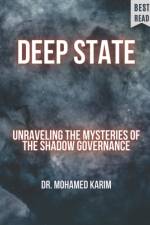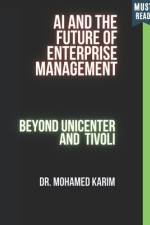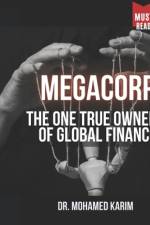- Unraveling the Mysteries of the Shadow Governance
av Mohamed Karim
279
The term "Deep State," often evoking a blend of skepticism and curiosity, refers to a supposed clandestine network entrenched within government, finance, and media, exerting control far beyond the elected leadership. This introduction critically explores this concept, dissecting its layers from historical, political, and sociological perspectives.Historically, the idea of a deep state finds roots in the Ottoman Empire's "derin devlet," a state within the state. However, its modern interpretation is vastly different, symbolizing the alleged web of influence cast by unelected officials, intelligence agencies, and big corporations. The 2016 U.S. election brought this term into the mainstream, with allegations that such a network was maneuvering to undermine the democratic process.Critically examining this, it's vital to differentiate between conspiracy theories and plausible influence exerting. For instance, in 2013, Edward Snowden's revelations about the NSA's surveillance programs highlighted how state apparatuses could operate in shadows, often bypassing public scrutiny and legal boundaries. This real-world example feeds into the deep state narrative, suggesting a covert dominion over public policy and personal freedoms.The financial crisis of 2007-2008 serves as another cornerstone for deep state theorists. The aftermath saw major banks bailed out by governments, a move criticized as a manifestation of the financial sector's deep-rooted influence over state policies. The intertwining of financial power and political decision-making raises questions about the genuine autonomy of elected governments.Media plays a pivotal role in this construct. The concentration of media ownership in the hands of a few conglomerates, as evident in companies like News Corp and Time Warner, leads to concerns about the manufacturing of consent, a term coined by Noam Chomsky. This refers to the manipulation of public opinion to serve elite interests, a critical component of the deep state's alleged modus operandi.Diverging perspectives argue that what's perceived as a deep state is merely the functioning of a complex bureaucracy, intrinsic to any large organization. Critics of the deep state theory often point out that inefficiency, competing interests, and the sheer scale of managing state affairs are mistaken for a coordinated, sinister control.In evaluating the Great Reset, a proposal by the World Economic Forum for a global economic revival post-COVID-19, deep state skeptics question its intent. The skepticism stems from concerns over global elites dictating world economies and policies under the guise of recovery, further entrenching their influence.Conclusively, while it's critical to avoid veering into the realm of baseless conspiracy, the existence of a deep state, in some form, warrants a rigorous and skeptical examination. This book aims not at propagandizing but at dissecting, questioning, and understanding the complexities of this shadow governance. It's a journey through the labyrinth of power, secrecy, and influence, with the goal of unveiling truths hidden in plain sight and fostering informed public discourse.









